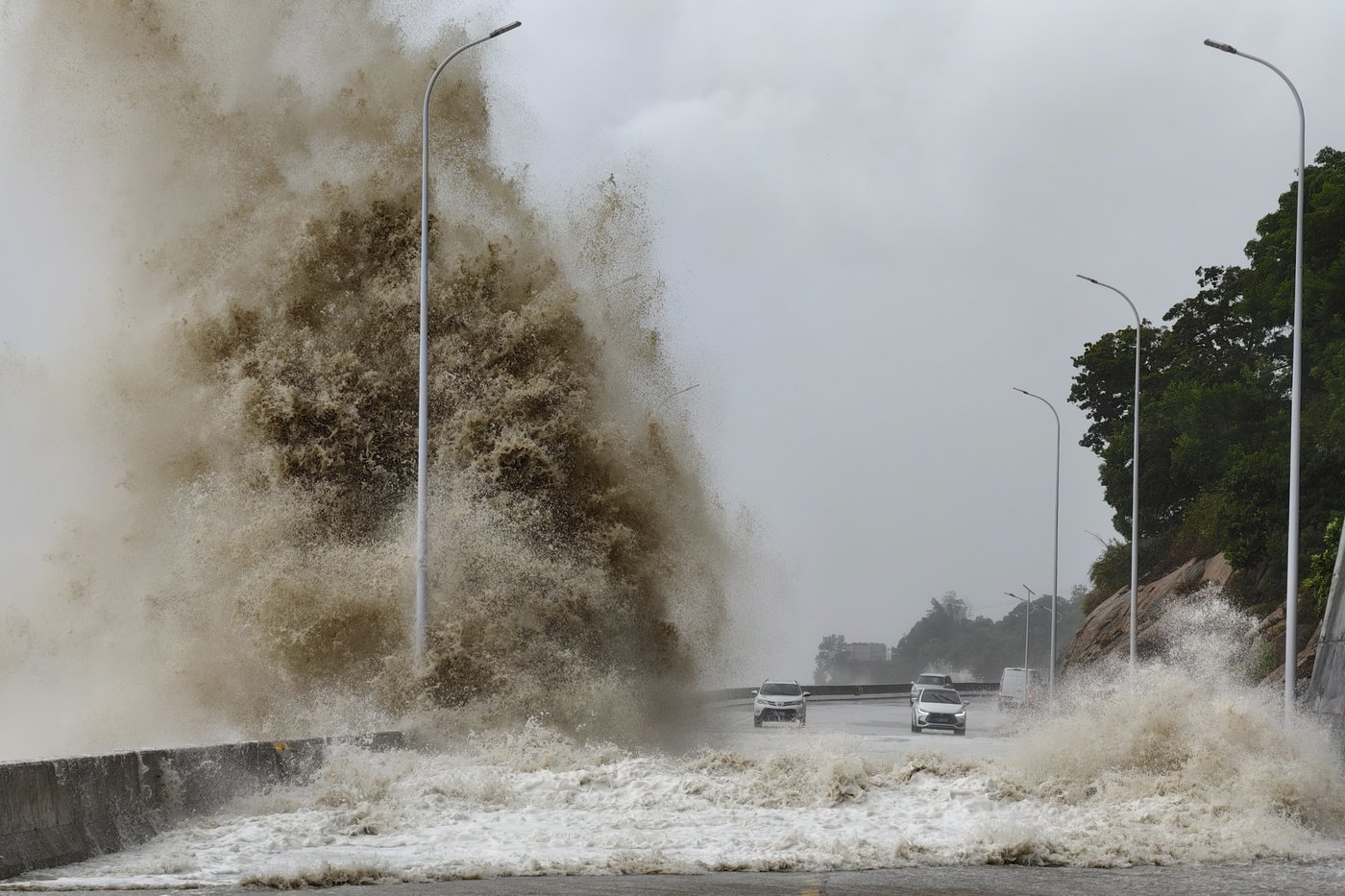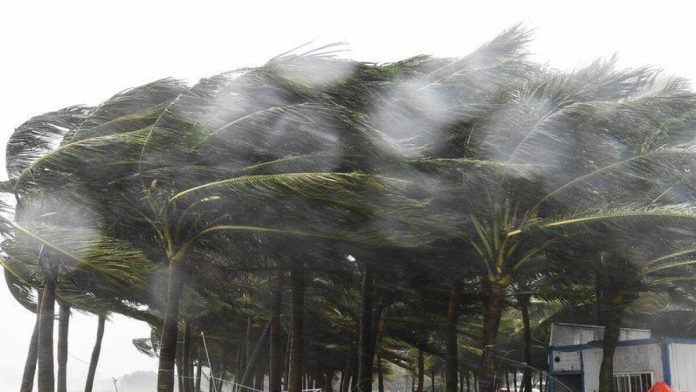Taiwan is currently grappling with the aftermath of Typhoon Krathon, a powerful storm that has wreaked havoc across the island, causing widespread damage, disruptions, and chaos. As the storm made landfall, it brought with it relentless winds and torrential rain, prompting urgent responses from emergency services and local authorities. This devastating weather event has highlighted the vulnerabilities of the region to extreme weather and the need for comprehensive disaster preparedness strategies.
Typhoon Krathon, classified as a Category 3 storm, began its approach to Taiwan late last week, leading to mass evacuations in coastal areas and warnings issued to residents across the island. The Taiwan Central Weather Bureau (CWB) issued alerts for severe weather conditions, predicting wind gusts exceeding 120 km/h (approximately 75 mph) and heavy rainfall that could lead to flash flooding and landslides. In anticipation of the storm, schools, businesses, and transportation services were suspended to safeguard public safety.
As the typhoon struck, cities like Taipei and Kaohsiung experienced power outages affecting thousands of homes and businesses. Public transportation systems faced significant disruptions, with trains and buses either delayed or canceled altogether. Reports emerged of trees uprooted, roofs torn off buildings, and debris littering streets, creating dangerous conditions for residents trying to navigate the chaos. Emergency services have been working tirelessly to clear roadways and restore power, although some areas remain isolated due to severe flooding.

The impact of Typhoon Krathon has been felt acutely by the agricultural sector. Taiwan’s farmers, already grappling with the challenges of climate change and fluctuating markets, now face the prospect of substantial crop losses due to flooding and strong winds. The Ministry of Agriculture has begun assessing the damage to assess the extent of the losses and to provide support to affected farmers. Reports indicate that rice, fruit, and vegetable crops may have been severely impacted, raising concerns about food supply and prices in the coming months.
In addition to agricultural concerns, the typhoon has also raised alarms regarding the infrastructure in place to withstand such severe weather events. Experts have called for a reevaluation of the island’s disaster preparedness strategies, emphasizing the need for robust infrastructure and effective communication systems during emergencies. While Taiwan has made strides in disaster preparedness and response, the growing intensity of typhoons and other natural disasters calls for increased investments in resilience and recovery efforts.
As the storm begins to weaken and move away from the island, attention is now turning to recovery and rebuilding efforts. Local authorities are mobilizing resources to assist communities affected by the storm, including providing temporary shelter, food, and medical assistance to those in need. Volunteers from various organizations have also stepped forward to help with cleanup efforts, showcasing the solidarity and resilience of the Taiwanese people in the face of adversity.
The government has pledged to conduct a thorough investigation into the storm’s impacts and to implement measures aimed at preventing future disasters. Policymakers are urged to consider integrating climate adaptation strategies into urban planning and infrastructure development, ensuring that communities are better prepared for the challenges posed by climate change.
Moreover, Typhoon Krathon has highlighted the importance of international cooperation in disaster response. Taiwan has a history of sharing its experiences and expertise in disaster management with other countries, particularly in the Asia-Pacific region. The island’s advanced early warning systems and robust disaster response frameworks have proven effective in mitigating the impacts of previous storms. As the global community grapples with the realities of climate change, sharing knowledge and resources will be crucial in enhancing resilience across regions vulnerable to extreme weather.
As the immediate threat of Typhoon Krathon subsides, discussions surrounding the long-term implications of climate change and extreme weather events are expected to take center stage. Activists and environmentalists are advocating for greater awareness and action regarding climate change, emphasizing the need for collective efforts to address the root causes of these increasingly severe weather patterns.
In conclusion, while the immediate impacts of Typhoon Krathon are being addressed, the broader implications for Taiwan and the global community are becoming increasingly clear. The storm serves as a stark reminder of the urgent need for effective disaster preparedness, infrastructure resilience, and climate action. As Taiwan begins the recovery process, the lessons learned from this experience will undoubtedly shape future policies and strategies aimed at safeguarding lives and livelihoods in the face of a changing climate.
